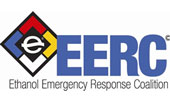The next Ethanol Safety Seminar will be held on August 3rd, in Indianapolis, Indiana. The event is sponsored by the Renewable Fuels Association (RFA) and the Greater Indiana Clean Cities. This free seminar will be offered during two sessions: 9:00 am – 2:00 pm and 5:30 pm – 10:00 pm, at the Indiana Soybean Alliance/Indiana Corn Marketing Council. Attendees will learn about proper training techniques that first responders and hazmat personnel need to understand to properly respond to any ethanol-related emergency. Although the seminar is targeted to first responders, hazmat teams, safety managers, and local emergency planning committees, the general public is also welcome. Indiana is one of the top five ethanol producing states.
 “The Greater Indiana Clean Cities has worked with fleets, both public and private, for more than ten years to implement alternative fuels and advanced transportation technologies,” said Kellie Walsh, executive director of the Greater Indiana Clean Cities. “As the use of these fuels and technologies expand across Indiana, ensuring our first responders are adequately prepared to respond to incidents involving these fuels is critical. We are pleased to partner with the Renewable Fuels Association to host this training session, focusing on ethanol safety, the third such event our Coalition has hosted in the past five years.”
“The Greater Indiana Clean Cities has worked with fleets, both public and private, for more than ten years to implement alternative fuels and advanced transportation technologies,” said Kellie Walsh, executive director of the Greater Indiana Clean Cities. “As the use of these fuels and technologies expand across Indiana, ensuring our first responders are adequately prepared to respond to incidents involving these fuels is critical. We are pleased to partner with the Renewable Fuels Association to host this training session, focusing on ethanol safety, the third such event our Coalition has hosted in the past five years.”
The training is based on materials created by the Ethanol Emergency Response Coalition (EERC) and certificates of participation will be given to those who complete the course. Areas of training include firefighting foam principles and ethanol, ethanol blended fuel emergencies and response tactics for tank farm and bulk storage emergencies.
Robert White, director of market development for RFA added, “This fuel [ethanol] is transported via rail and truck to numerous fueling and storage locations throughout the state and country. It is important first responders and plant safety personnel are prepared in case of an ethanol related emergency. We are happy to provide the information they need to respond efficiently and effectively to an incident.”

